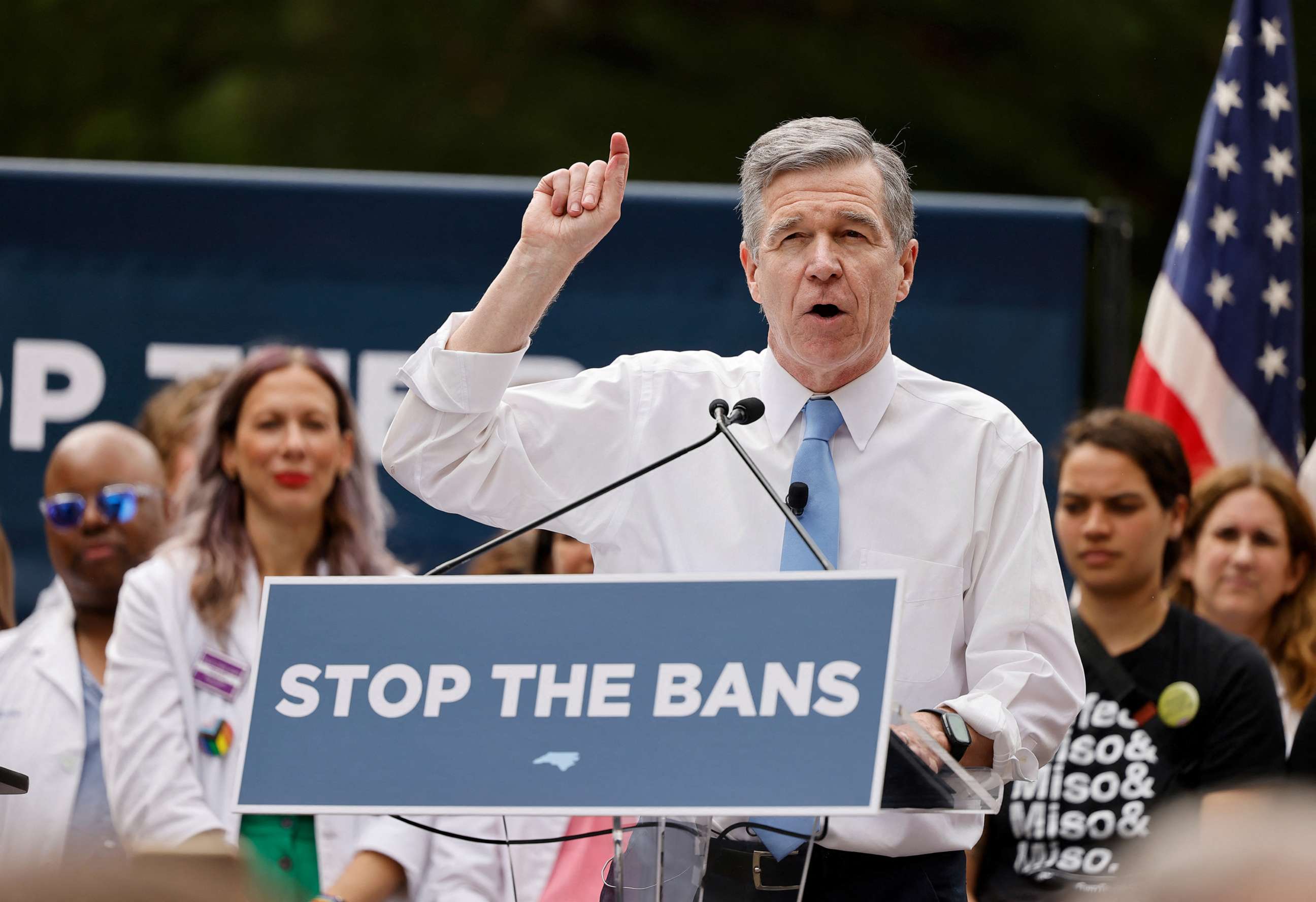North Carolina governor vetoes 12-week abortion ban as override threat looms
The veto holds if "just one Republican follows his or her conscience," he said.
North Carolina Gov. Roy Cooper on Saturday vetoed a Republican bill that would ban most abortions after 12 weeks, though the politics of the state mean that the possibility of a veto override is imminent.
The Democratic governor would likely need just one Republican defector to prevent the GOP-led legislature from overriding his veto and allowing the current 20-week limit to remain in place -- and he implored those lawmakers to exercise that option.
"Maybe it'll be a friend or family member or even a doctor of one of these Republican legislators who convinces them to step up and do the right thing," the governor said on Saturday as he issued the veto at a rally of hundreds of abortion rights supporters and voters in downtown Raleigh.
"If just one Republican follows his or her conscience, if just one Republican finds the courage, if just one Republican listens to doctors, if just one Republican is unafraid to stand up to the political bosses, if just one Republican keeps that promise made to the people, then we can stop this ban," he continued.
Just a few weeks ago, Cooper's veto pen likely would have been enough to stop a bill from becoming law. But a party-switch from one state representative has handed North Carolina Republicans a veto-proof supermajority.
State Rep. Tricia Cotham, previously a Democrat who ran on supporting abortion rights, announced she was switching to the Republican Party in early April. Cotham voted in favor of the new abortion bill banning the procedure after 12 weeks with some exceptions.
Now, Cooper needs at least one Republican to decline to override his veto to defeat the bill.

Republican leadership has pushed back on Cooper's criticism of the bill, describing it is a "mainstream abortion compromise."
"Gov. Cooper has spent the last week actively feeding the public lies about Senate Bill 20 and bullying members of the General Assembly," Senate Leader Phil Berger said in a statement Saturday after Cooper's veto.
"He has been doing everything he can, including wasting taxpayer money on poorly attended events, to avoid talking about his own extreme views on abortion," Berger said. "I look forward to promptly overriding his veto."

The abortion bill, dubbed the "The Care for Women, Children and Families Act," passed earlier this month along party lines.
It would ban most abortions after 12 weeks of pregnancy and offers exceptions in cases of medical emergencies, rape and incest up to 20 weeks and for "life-threatening" fetal anomalies up to 24 weeks.
The legislation would also restrict abortion medication from being mailed.
Providers who perform abortions outside the bills' parameters would face possible discipline from the state medical board, including possible probation, fines or revoking of licenses.
-ABC News' Anne Flaherty and Mary Kekatos contributed to this report.




